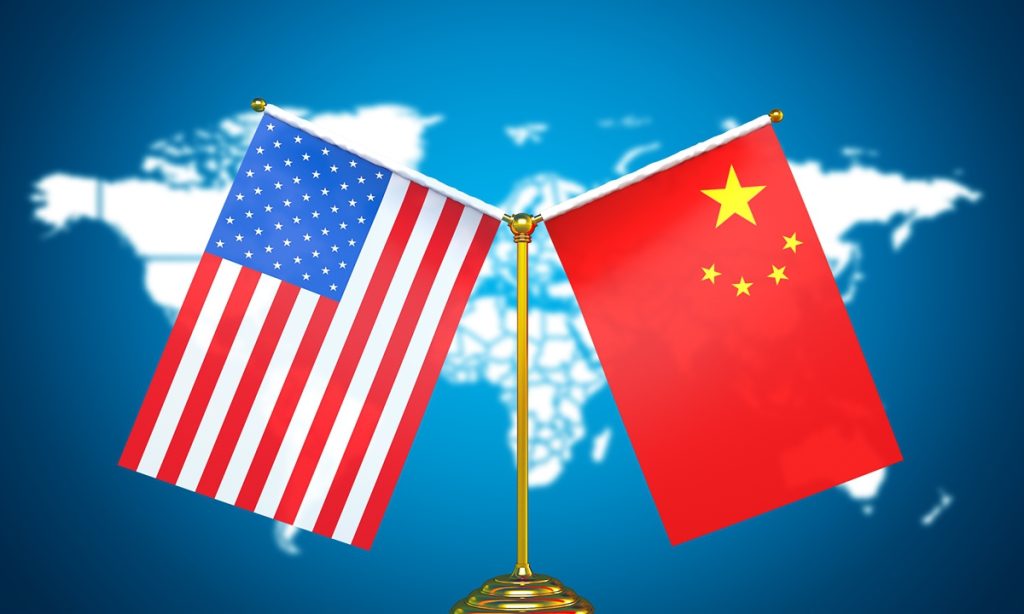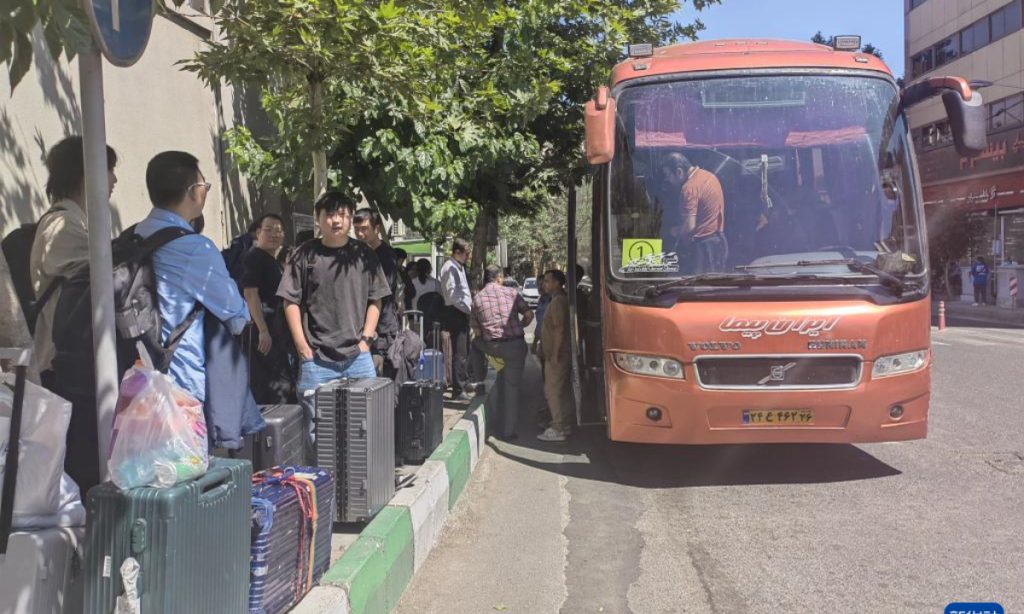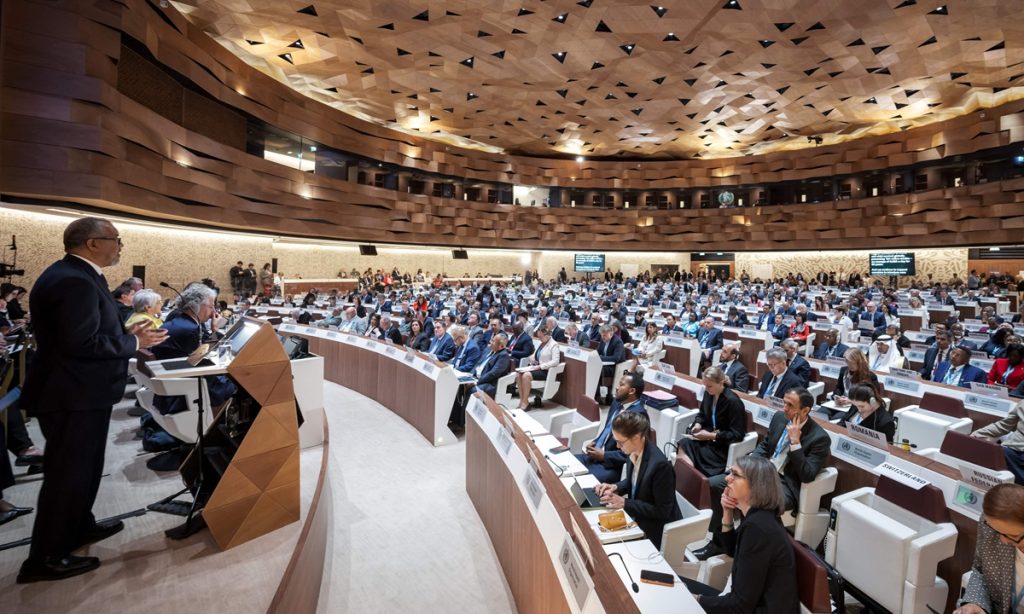China, US confirm details on framework for implementing Geneva trade talks consensus: Commerce Ministry

The Chinese and US economic and trade teams have recently further confirmed the details on the framework for implementing the Geneva trade talks consensus. China will review and approve compliant export applications for controlled items in accordance with the law and regulations. The US will correspondingly remove a series of restrictive measures taken against China, China's Ministry of Commerce (MOFCOM) said in a statement on Friday.
MOFCOM's statement came in response to an inquiry about claims by some US officials and media reports that China and the US have reached a supplementary understanding on the framework for implementing the Geneva trade talks consensus and that China will accelerate its rare-earth exports approval process regarding shipments to the US, while the US will cancel relevant restrictive measures against China accordingly.
After trade talks in London from June 9 to 10, the Chinese and US teams maintained close communication, MOFCOM added.
It is hoped that the US will meet China halfway, and further leverage the role of the China-US economic and trade consultation mechanism in accordance with the important consensus and requirements reached by the two heads of state in their phone talks on June 5, continuously enhance consensus, reduce misunderstandings, strengthen cooperation, and jointly promote the healthy, stable and sustainable development of China-US economic and trade relations, MOFCOM said.
The current progress between China and the US reflects efforts to turn consensus into concrete actions, and such practical measures provide important support for all parties, including US businesses, by helping to stabilize supply chains and strengthen development resilience, a Chinese expert said.
However, concrete actions and sincerity are needed from the US in order to implement the consensus and deliver results, the expert said, urging the US to meet China halfway.
Widespread response
News of the latest progress in China-US trade issues has drawn widespread attention in recent days, following early reports from certain Western media outlets.
The US and China finalized a trade understanding reached last month in Geneva, US Commerce Secretary Howard Lutnick claimed, Bloomberg reported on Thursday.
The China deal, which Lutnick claimed had been signed two days ago, codifies the terms laid out in trade talks between Beijing and Washington, including a commitment from China to deliver rare earths, according to the report.
Earlier on Thursday, US President Donald Trump said the US had signed a deal with China on Wednesday, without providing additional details, Reuters reported.
Global markets responded immediately on Friday afternoon after MOFCOM revealed further details on China-US trade progress, as the world closely watches how the trade situation develops between the two largest economies.
The S&P 500 rose to a new record on Friday, the culmination of an improbable turnaround for US stocks this year as they overcame trade turmoil and geopolitics to reclaim the record set in February, the CNBC reported, noting that Friday's gain was driven by hope that trade deals with China and other countries are coming soon.
European stocks also rose on Friday, led by automakers, as signs of easing trade tensions between Beijing and Washington raised hopes of a de-escalation in the US-led tariff war, Reuters reported.
The new progress in China-US trade issues reflects the high level of market attention on the future of trade relations between the world's two largest economies, experts said.
"The latest developments in China-US trade issues demonstrate a move toward implementing agreed-upon goals. These tangible steps offer crucial support to all stakeholders, including American companies, by contributing to supply chain stability and greater resilience in development," Zhou Mi, a senior researcher at the Chinese Academy of International Trade and Economic Cooperation, told the Global Times on Friday.
"The further implementation of the consensus reached by the leaders of both countries also underscores the Chinese government's consistent stance—resolving economic and trade issues through multilateral rules and honoring commitments with concrete actions," he added.
It also demonstrates a full consideration of business needs and respect for fundamental market principles, Zhou said, noting that such practical measures provide important support for all parties, including US companies, by helping stabilize supply chains and enhance development resilience.
More sincerity needed
In contrast, the US has yet to turn the consensus into concrete action, Zhou said, noting that instead of easing restrictions, it continues to send signals that undermine China-US economic cooperation and trust, disrupting both markets.
In order to further implement the consensus between the two sides, concrete actions are necessary, Zhou said, urging the US to meet China halfway.
Commenting on the latest progress, Huo Jianguo, a vice chairman of the China Society for World Trade Organization Studies in Beijing, told the Global Times on Friday that "the outcome of the London talks serves as a test of both sides' sincerity and credibility. Whether the two countries can truly move toward each other hinges on their actions to follow through on the consensus and commitments reached."
"The US side pledged to ease restrictions, and I believe this presents a key opportunity for the administration to demonstrate genuine intent for cooperation," Huo said, adding that if this round of cooperation progresses smoothly, it will lay a solid foundation for future negotiations and help build a more robust framework of mutual trust between China and the US — a development that would also benefit the US and the world.
The trade disputes initiated by the US administration have already taken a toll on its own economy and had broader global impacts.
The US economy posted its first contraction in three years, data from US Bureau of Economic Analysis (BEA) showed on Thursday (US time). Real GDP decreased at an annual rate of 0.5 percent in the first quarter, a downward revision of 0.3 percentage point from the previous estimate, according to the third estimate released by the US BEA on Thursday.
According to Reuters, the data contracted "a bit faster than previously thought in the first quarter amid tepid consumer spending, underscoring the distortions" caused by the US administration's aggressive tariffs on imported goods.
In a press conference by the China Council for the Promotion of International Trade (CCPIT) on Friday, the council's spokesperson Wang Linjie revealed the latest global economic and trade friction index, which stood at 131 in April, continued to rise.
On April 2, the US government implemented "reciprocal tariffs" citing issues such as trade deficits and non-tariff barriers, along with multiple restrictive measures introduced that month, which were the main reasons for the continued rise in the global trade friction index in April, Wang noted.
Despite the headwinds, China continues to be an attractive market for US businesses, as demonstrated on several key international occasions on which American industry representatives have shown strong support through their participation.
During the recently concluded Summer Davos in North China's Tianjin, US business representatives and experts expressed confidence in the Chinese market, underscoring the strong appeal of China's economy.
Moreover, at the upcoming third China International Supply Chain Expo (CISCE), which is scheduled from July 16 to 20 in Beijing, the number of US exhibitors is expected to increase by 15 percent compared to the previous event, maintaining their position as the largest group of overseas exhibitors, according to the CCPIT on Friday.
China-US relations have weathered many storms, but they continue to move forward, said the CCPIT spokesperson, noting that the business communities of both countries, in particular, form a community of shared interests that stands together through challenges.

